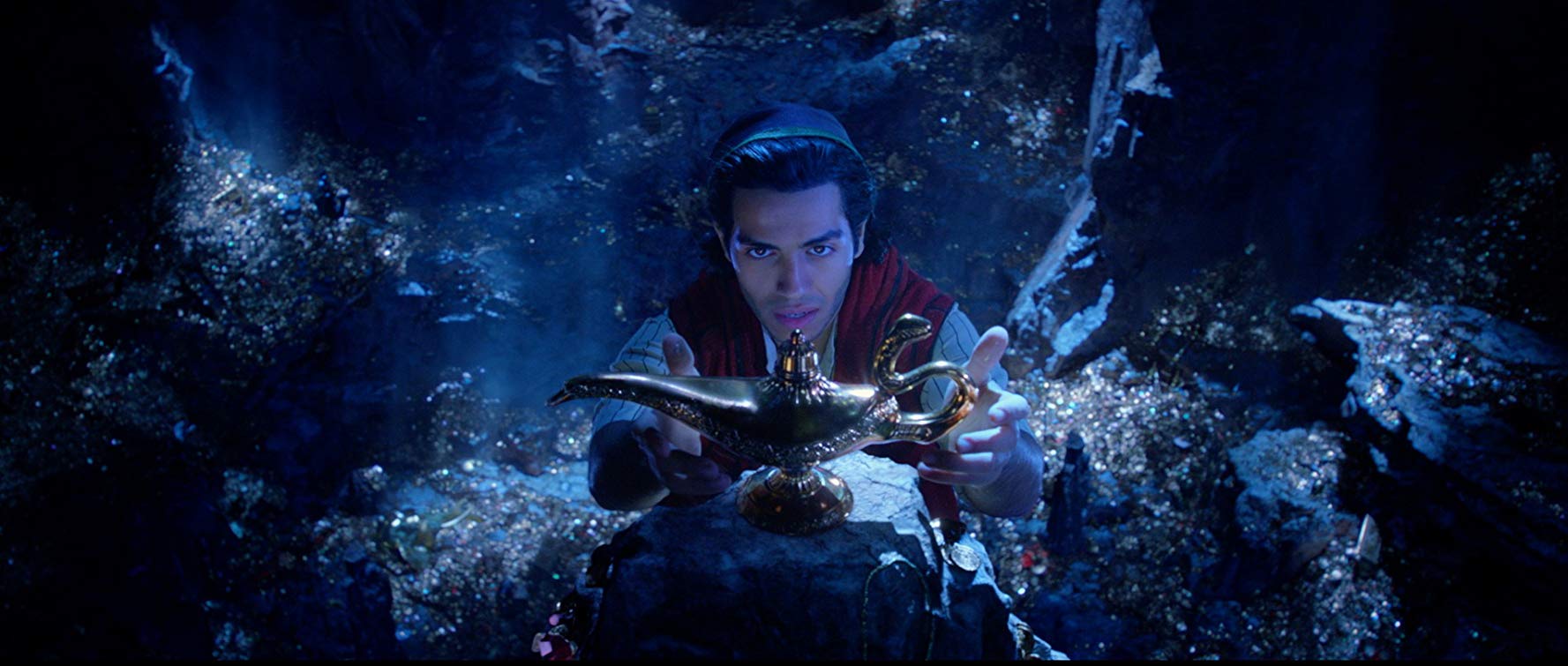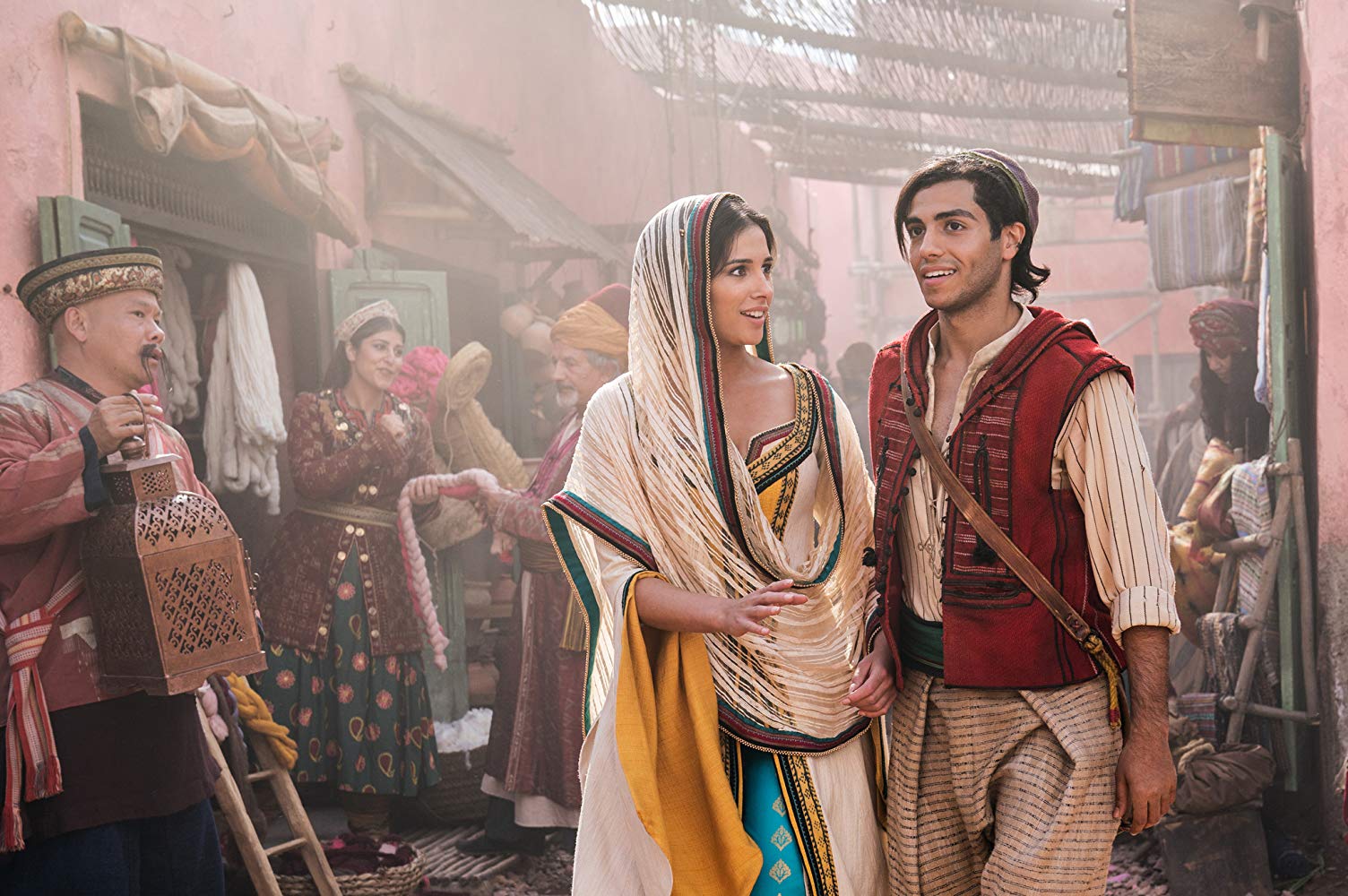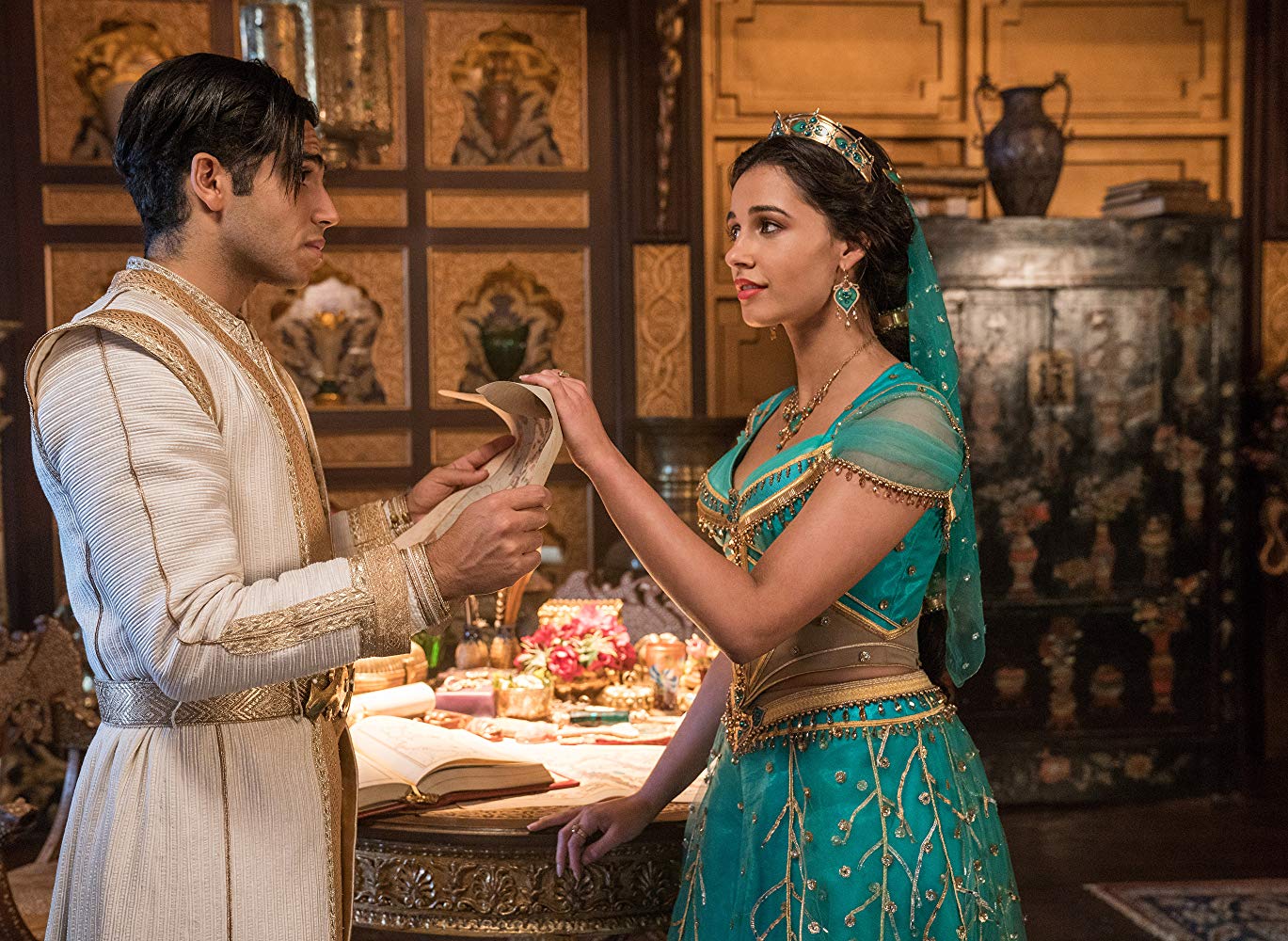After all, Genie is one of the most iconic Disney animated characters of all time, right up there with Simba, Mulan and the Beast from Beauty and the Beast. But unlike the rest of the characters mentioned, Genie is synonymous with a single performer with a singular sense of comedic style and timing. I am of course talking about the late great Robin Williams. “How would Will Smith, as talented as he is, even hold a candle to his predecessor?” “How would he be able to emulate the master?” Valid questions. The answer is, he doesn’t and that’s a good thing. In the live-action adaptation of Aladdin Will Smith doesn’t try to imitate or impersonate Williams, but makes Genie his own. Smith introduces his own brand of comedy and charm to the character and by doing so ends up being, just as Williams was, the unrivalled best part of the movie. He’s wholly entertaining — spunky, vibrant and full of life. Whenever he’s on screen, I lit up like New York City on the night of New Year’s Eve. Surprised? In fact, the whole movie is pretty damn entertaining. We’re all familiar with the story. A spirited street rat falls in love with a beautiful and strong-minded princess who’s not allowed to leave the castle by her overprotective Sultan father. There’s also an evil Grand Vizier who’s lusting for power and promises to take over the reins of Sultan. Amidst all of that, a magical lamp that unleashes a Genie that will grant you three wishes, a flying carpet with a mind of its own, an angry Parrot, a thieving but friendly monkey and a tiger that will rip your face off at the Princess’ command. It’s a simple fairy tale that packs a powerful message about feminism that is sure to inspire kids. Unlike the original, this isn’t just about Aladdin trying to save the princess from an evil dude, but one that explores (to a degree) Jasmine’s loneliness and her unbending desire to run a Kingdom after her father steps down.
Though it could’ve been 10 minutes shorter (it runs at 2 hours and 8 minutes compared to the tight 90 minutes runtime of the original), Aladdin mostly zooms by in such a kinetic pace that you’ll never feel bored or disinterested in the goings-on. Some of it has to do with the soundtrack which opened a little gate in my brain that allowed memories from my childhood to come crashing in — oh boy, is ‘A Whole New World’ amazing! I’m not going to lie, there were more than a number of moments where I found myself tearing up. Even some of the new songs felt like welcome editions to the film. There is one performed thunderously by Naomi Scott (Princess Jasmine) with such fiery passion and ferocity that it announces her as a star in the making. Speechless is one of the best Disney songs in recent memory! But it isn’t just the musical numbers, Naomi Scott commands the screen with such confidence, you simply cannot take your eyes off her. She’s brilliant! (Mena Massoud is believable as Aladdin but Marwan Kenzari feels like an out of place caricature as Jafar.) Aladdin is entertaining. I’ve made that much clear. The problem is, this film does not need to exist. The same way the live-action remake of Beauty and the Beast didn’t need to exist. The same way Jungle Book absolutely needed to. I’m not against remakes and reimaginations, but a remake needs to exist for a stronger purpose than just milking the greens from our pockets. Apart from a couple of new songs (which are great) and the beefing up of Princess Jasmine, Aladdin doesn’t offer anything new and enthralling.
Guy Ritchie is a weird choice for a director. There’s no denying the man’s talent. Action-thrillers like Snatch, Lock Stock and Two Smoking Barrels and Sherlock Holmes are brilliant works of art that showcase Ritchie’s overt sense of style and vision that’s unlike any other director working today. But it isn’t a style that gels well in a film that’s desperately trying to be magical and wondrous. As the film progresses, it becomes painfully obvious that Ritchie is at times wrestling with himself as he tries to capture the awe of the original while also injecting his own flavour. Sometimes — well, one time — it works. There is a scene where Aladdin gets flung out of a tower into the sea; Ritchie uses a pause-fast-forward technique that makes the sequence more interesting than it had any right to be. Other times, it feels jarring. This is especially true of the final moments of the film, in which the stylistic helmer incorporates his brand of hyperactive editing into… a Bollywood-style dance number. It’s a baffling choice that does nothing but highlight Ritchie’s inability to bring to its fullest life an expansive, fantastical world. Agrabah doesn’t feel alive and lived in. It looks like a soundstage and feels like a set.
When Guy Ritchie was first announced as the director of Aladdin, I was excited; hopeful that Disney was planning on putting a different spin on the 1992 classic. I wondered if we were going to get an Aladdin film that’s completely unique to Guy Ritchie, much like Sherlock Holmes was. Would this version of Aladdin be dirty and bare-knuckled? Would its titular character punch people in slow motion? That arguably could’ve been a far superior film to this. As critical that I am being though, there’s no denying the (purely nostalgic) tears I shed or the smile I had plastered across my face for the majority of its runtime. Genie is great! Naomi Scott is a star! The soundtrack (and some of the choreography) is great! I had a lot of fun at the movies. This is a thoroughly enjoyable family film and if you’re a 90s kid like me, it’s also a lovely film to go on a date. But you can have the same amount of fun and have the same experience watching the 1992 animated film on a big screen TV at home. The 2019 version of Aladdin is a fine film. It’s just one that doesn’t need to exist.
Rating: 3.5/5


